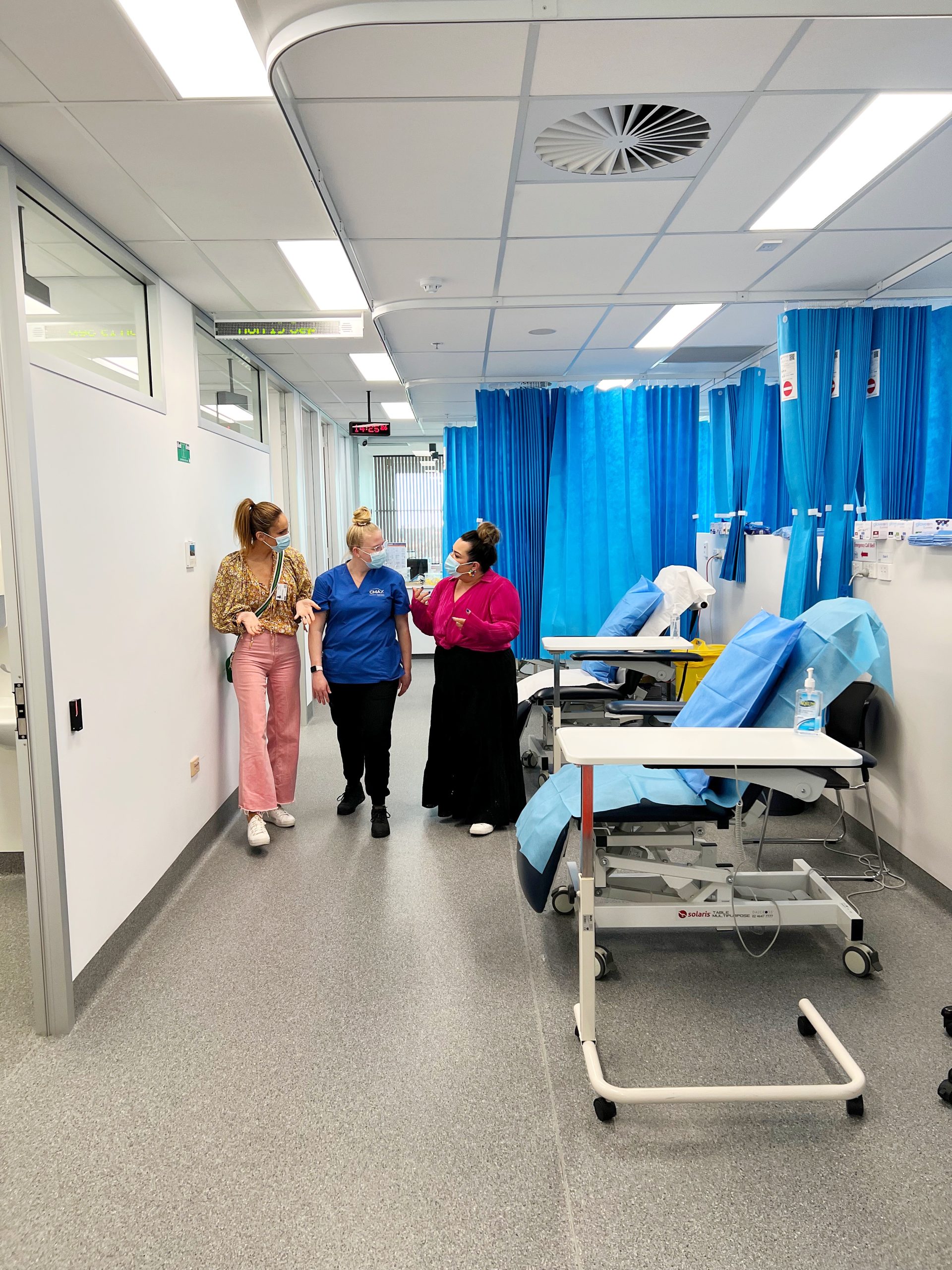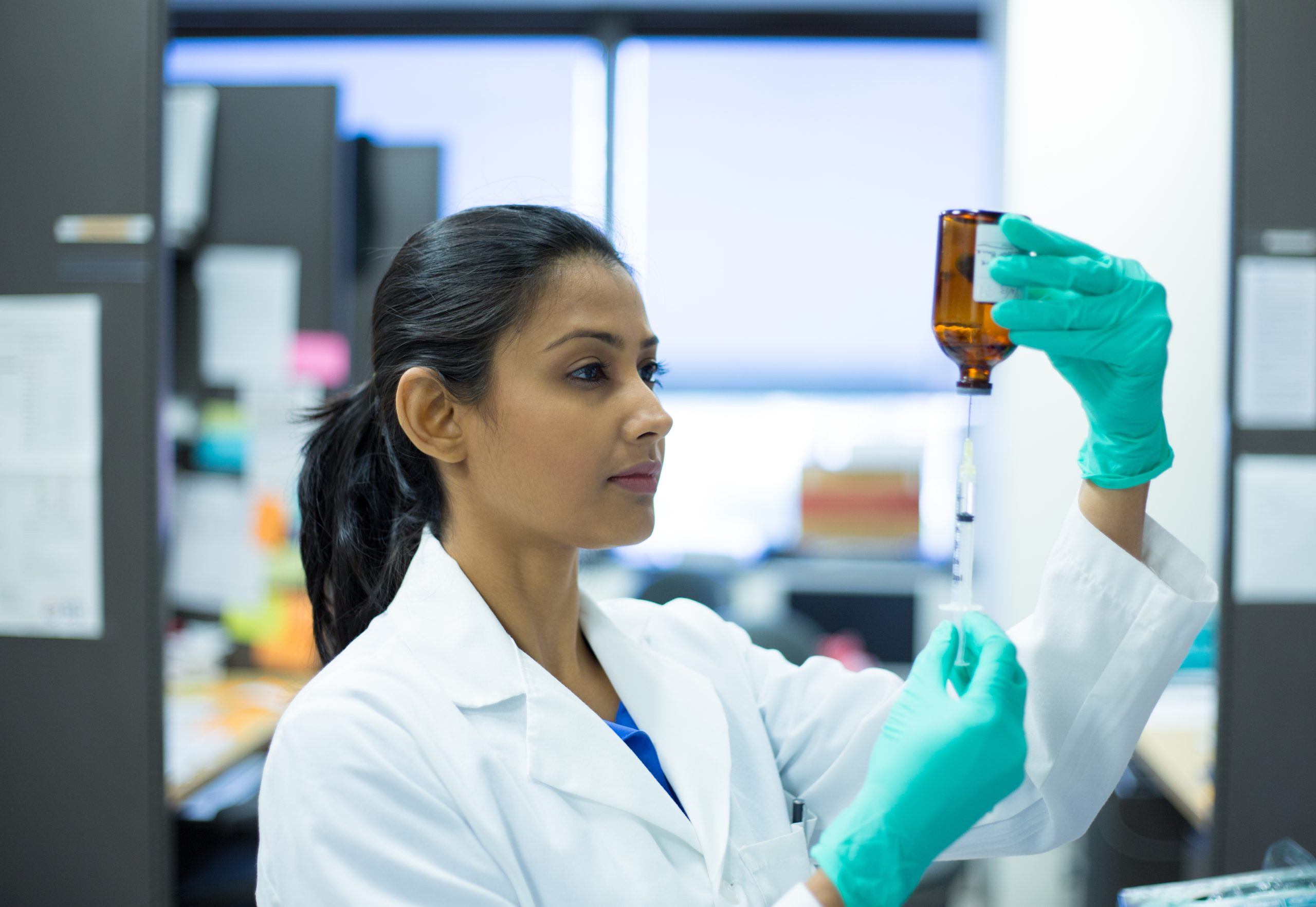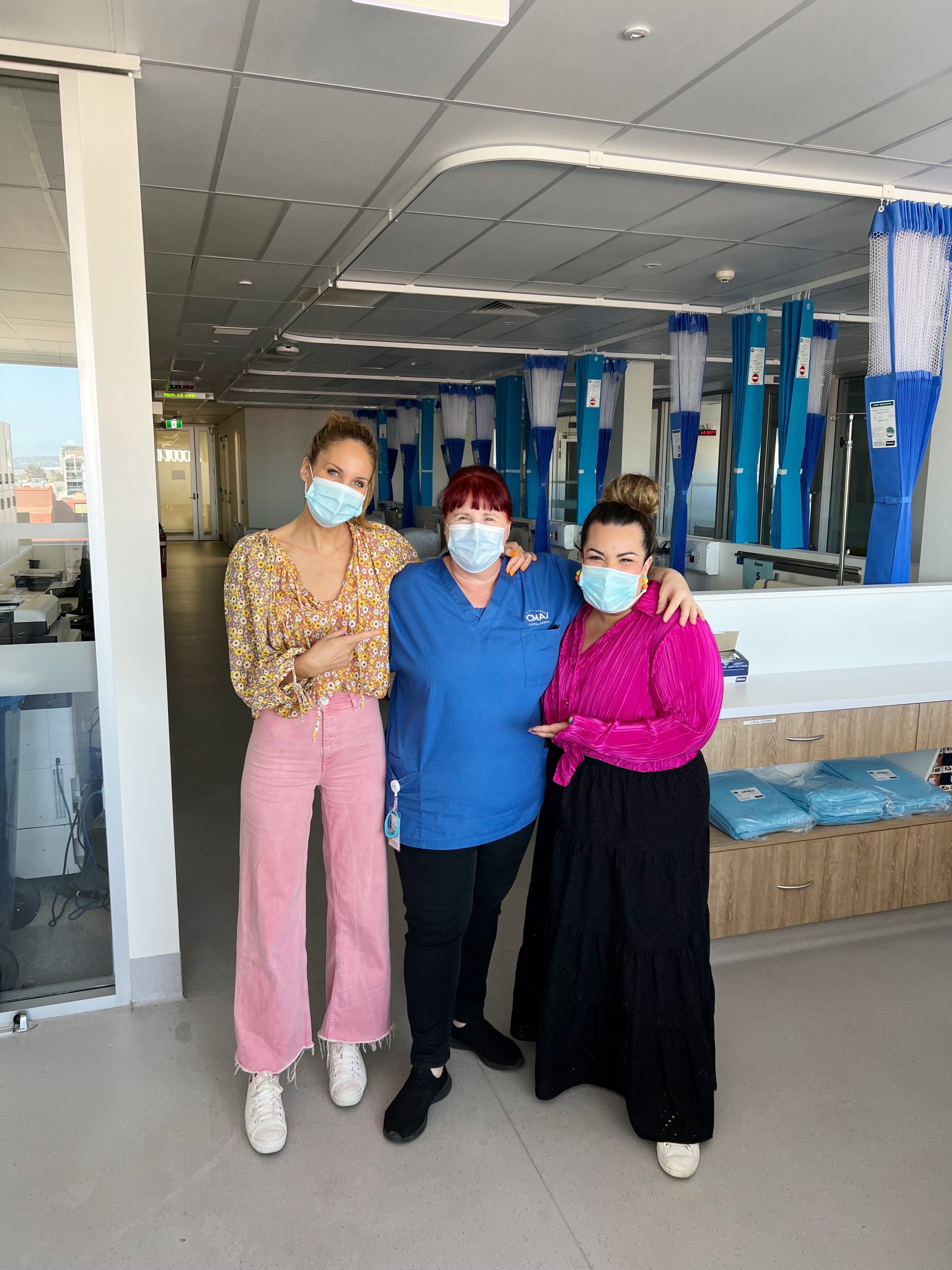What if we told you there was life-changing greatness happening right here in our own backyard?
South Australia is home to CMAX Clinical Research — and CMAX is something that all of us should know and care about. Why? Because they’re involved in ground-breaking research that has the potential to change lives.

Let’s dive a little deeper into what CMAX is. They’re a research company that specialises in Phase 1 of clinical trials, which means they’re the first stop in human research for any potential new drugs, treatments and medical devices. With the help of healthy volunteers, they test the latest and greatest in medical science.
“We work for the betterment of society by providing accurate data for evaluation of the safety and tolerability of a medication so it can move into the next phase of trials,” says Nicholas Lee, Chief Financial Officer at CMAX.
Even if you haven’t heard of CMAX before, there’s still a chance they’ve impacted your life. They work with companies globally that choose to run their clinical trials through Australian facilities. Phase 1 trials conducted by CMAX have led to the Food and Drug Administration (FDA) and Therapeutic Goods Administration (TGA) approval of:
+ Tafinlar (which is used for the treatment of advanced melanoma with the BRAF V600E Mutation)
+ Erivedge (which is used in the treatment of Basal Cell Carcinoma, and is prescribed when patients are no longer responsive to conventional therapy)
And TGA approval of:
+ Vabomere (which is used for complicated Urinary Tract Infections and other complicated infections, including hospital-acquired pneumonia).

When we say we had plenty of questions about how these clinical trials work, we mean it. So, let’s hand it over to the experts to give us a little more background on how trials in the middle of our hometown could possibly change the world.
Why do you need volunteers to participate in clinical trials?
In Australia, there are incredibly strict guidelines and regulations for a medication to be approved. All potential medications or medical interventions must go through four phases of clinical trials.
The problem is many trials don’t make it past Phase 1 because we don’t have people enrolled to test it. We need healthy volunteers to participate, to gain baseline data and for safety assessments, but the most challenging part is getting enough people involved in the trials.
What do participants get for taking part?
Anyone who completes the trial is paid for their time. And, of course, we cover the volunteer’s needs during the trial period by providing accommodation, food and wi-fi.
How can these volunteers help others all over the world?
The benefit for society is far greater! Every single participant makes a global impact by taking part in a local trial because they bring a product one step closer to reality for people who really need these potentially life-changing medications.
For example, some trials could be looking at a potential device to help those who need daily medication, but have a condition, such as schizophrenia, that makes it hard to track their doses. Other studies look at things like a potential new cancer treatment; or an improved version of a product already on the market, which aims to reduce side effects from currently available options.
There are so many different trials happening every day — just imagine what life could be like if we could get them all across the line!

Who can take part in a clinic trial?
At CMAX, we specialise in Phase 1 and 2 trials. Generally speaking, this means we need people who are healthy and typically aged 18 to 55. They cannot be taking any other medications (other than contraception), or have any significant health concerns or conditions.
In saying that, each study has its own unique set of criteria. For example, some may be more accessible to people who take medications but have controlled conditions. Some trials will allow regular smokers, while others won’t. It’s entirely dependent on the product itself, and the safety of participants is always the top priority at CMAX.
If someone can’t participate in clinical trials themselves, they can always spread the word. Sometimes, that’s just as important as taking part in a trial.
How do you ensure the safety of the volunteers that take part?
The eligibility criteria are very strict to keep people as safe as possible. The first step is a thorough screening process where vitals and bloods are sent to the lab to identify underlying health conditions that could cause concern.
Throughout the trial, a principal investigator (who is either a specialist, head doctor or a delegate of one of them) is present for dosing and monitors each individual closely; and on the clinic floor, there are always several doctors and nurses in case they are needed at any time, as well as strict procedures for regular check-ins and data collection.
Participants are required to stay within the facility for supervision, monitoring and regular blood withdrawals to make sure things go as expected.

Why do you need volunteers to participate in clinical trials?
In Australia, there are incredibly strict guidelines and regulations for a medication to be approved. All potential medications or medical interventions must go through four phases of clinical trials.
The problem is many trials don’t make it past Phase 1 because we don’t have people enrolled to test it. We need healthy volunteers to participate, to gain baseline data and for safety assessments, but the most challenging part is getting enough people involved in the trials.









